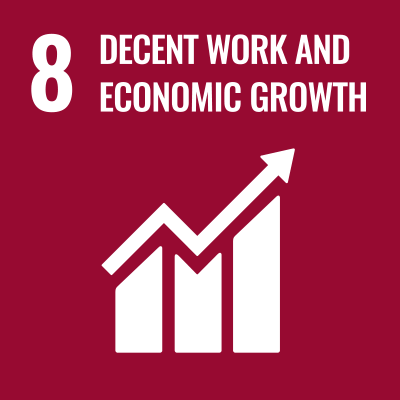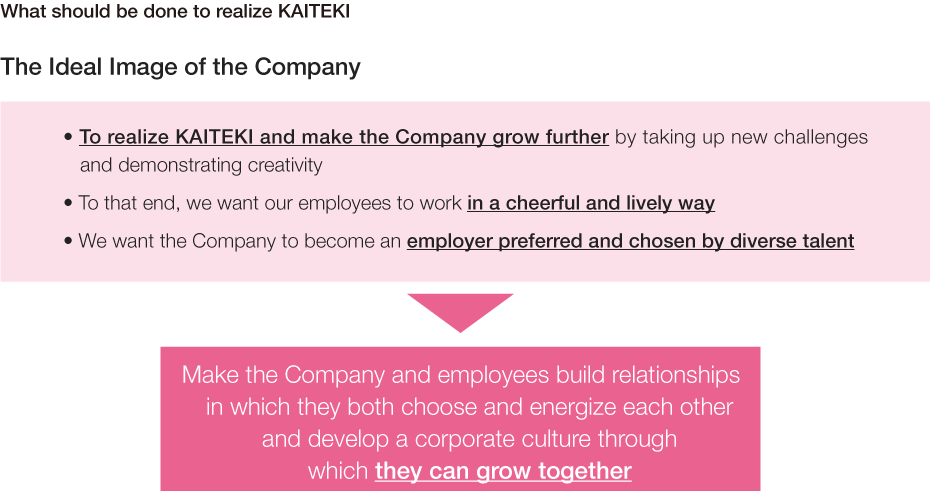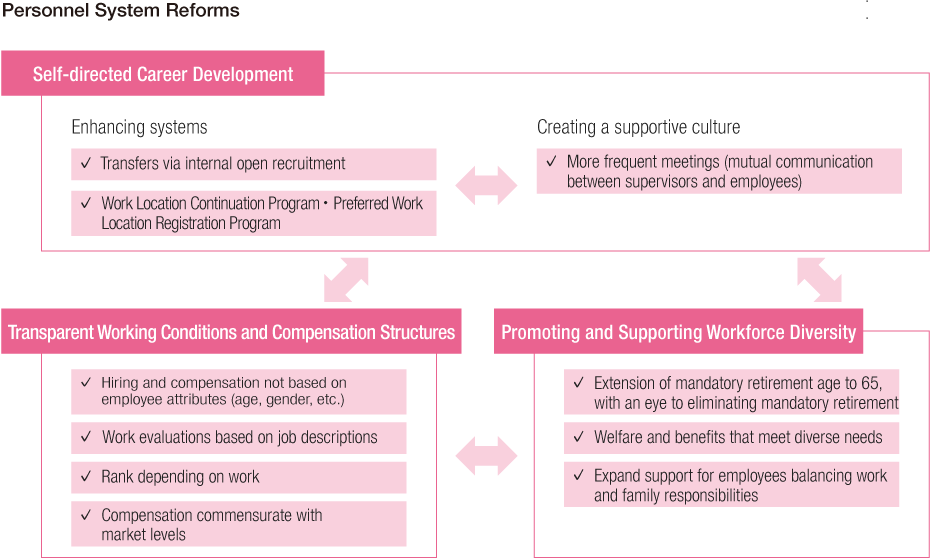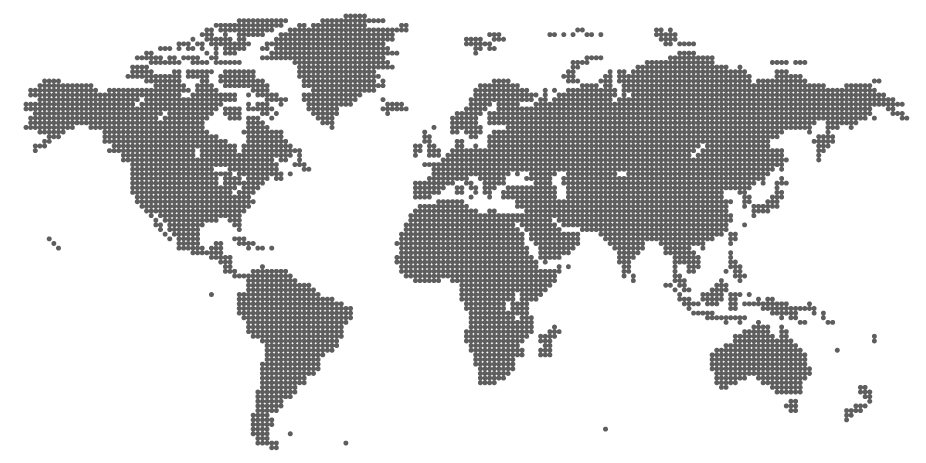Personnel System Reforms for a Time of Rapid Change

Relevant SDG
SDG 8: Promote sustained, inclusive and sustainable economic growth, full and productive employment and decent work for all
Reforms Born from the Urgent Need to Survive
Mitsubishi Chemical initiated new personnel system reforms in spring 2019. These reforms were spurred by the urgent conviction that, given changes in the environment surrounding the company and changes in workers’ ways of thinking, both the company and its employees must change in order to survive. We began the project to help contribute to the company’s growth by examining such questions as whether current personnel systems support initiatives that promote ambitious efforts and innovation on the part of employees, whether the employment we provide is appealing, and whether the mechanisms and environments we have in place encourage the acceptance of diverse values.
Breaking away from previous systems, we are reexamining our basic goals to consider new systems. We believe that implementing reforms based on the results of these considerations will help us get closer to our ideal for the company.
Personnel System Reforms to Help the Company and Employees Grow Together
The key themes for these reforms are self-directed career development; transparent working conditions and compensation structures; and promoting and supporting workforce diversity.
In terms of self-directed career development, we will provide systems that support employees in developing the careers they themselves want. In addition to increasing the frequency of meetings aimed at expanding support for employee growth, we have introduced one-on-one meetings between employees and their supervisors (begun in July 2020). In addition, we have adopted open recruitment as the main means of employee transfer and set up systems to give consideration to location when transferring employees (begun in October 2020). Through dialogue between employees and their supervisors, we are promoting self-directed career development based on mutual understanding of the kinds of careers that employees want to build and the support they need.
To ensure transparent working conditions and compensation structures, we are establishing salary and bonus systems that reflect employee duties and performance as well as market standards. Furthermore, until now, employees received such benefits as allowances and stipends based on their various individual circumstances. We aim to remove considerations related to specific employee attributes, adopting instead a more uniform approach to employee welfare and benefits (to be implemented in April 2021).
Finally, in promoting and supporting workforce diversity, we will extend the mandatory retirement age to 65 so that employees can work longer despite their age. In coordination with self-directed career development efforts, to enable supervisors to better support the ambitious efforts and growth of their subordinates, we are revising existing frameworks in which supervisors unilaterally issue instructions. Instead, we seek to encourage supervisors to take the time to listen to their employees and promote awareness that each individual has different values and is deserving of mutual respect.


Fostering a Culture That Will Help Realize KAITEKI
We believe that, even in an environment changing as rapidly as the one we find ourselves in today, if each employee takes up new challenges and demonstrates creativity, it will lead to corporate growth. Furthermore, to become a company preferred and chosen by diverse talent, we must ensure that the Company and employees build relationships in which they both choose and energize each other and develop a corporate culture through which they can grow together. These personnel system reforms will serve as the starting point to achieve this. By improving our personnel systems, which form part of the foundation for working toward the shared goal of realizing KAITEKI, we aim to fully utilize the abilities and strengths of each individual within their respective field of specialization.
We expect to start seeing the results of these systems after they have begun to operate in earnest, once all their components have gone into effect (April 2021). Furthermore, these reforms are a company-wide project. Ensuring that all employees understand and fully utilize our personnel systems will require regular, effective communication within departments, starting with that between supervisors and their employees, and between departments. By doing so, we will bolster shared values of diversity and mutual respect and thereby develop a culture that will help realize KAITEKI.

